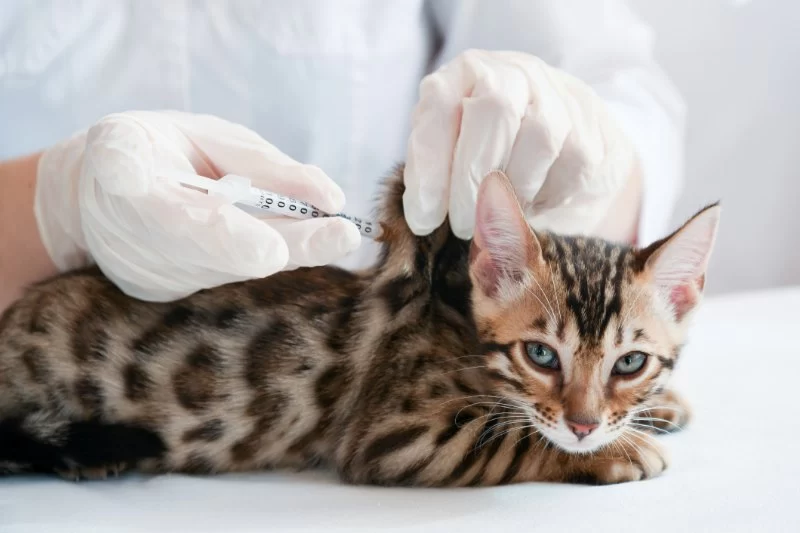- how-often-cats-need-vaccination-2025
- core-vs-non-core-vaccines-cats-2025
- kitten-vaccine-schedule-updated-2025
- adult-cat-booster-schedule-2025
- real-cat-owners-stories-vaccine-impact
- vaccine-side-effects-what-to-watch
- where-to-get-cat-vaccines-2025
1. How Often Should Cats Get Vaccinated? Updated 2025 Booster Schedule
Vaccinating your cat isn’t just about keeping them safe—it’s a commitment to their long-term health. With the latest 2025 feline vaccination guidelines now available, understanding how often cats need vaccines is crucial. The updated recommendations reflect modern veterinary research and lifestyle-based risk factors, helping pet owners make informed decisions.
For most cats, especially those in the United States, core vaccines are still required on a set schedule, while non-core vaccines depend on lifestyle, age, and risk of exposure. Keeping your cat on track with their vaccinations means fewer health issues and a longer, happier life with you.
2. Core vs. Non-Core Vaccines for Cats in 2025
In 2025, veterinarians continue to divide vaccines into two main categories:
2.1 Core Vaccines (Essential for All Cats)
Core vaccines are universally recommended, regardless of whether your cat stays indoors or roams outdoors:
- FVRCP: Protects against Feline Viral Rhinotracheitis, Calicivirus, and Panleukopenia.
- Rabies: Legally required in most states, this vaccine is crucial for public and animal health.
2.2 Non-Core Vaccines (Lifestyle-Dependent)
These are recommended based on your cat’s risk of exposure:
- FeLV (Feline Leukemia Virus): Especially for outdoor or multi-cat environments.
- Bordetella and Chlamydia felis: More common in catteries or shelters.
3. Kitten Vaccination Schedule (Updated for 2025)
The foundation of lifelong immunity starts during kittenhood. The 2025 kitten vaccine schedule looks like this:
3.1 First Round: 6–8 Weeks
Kittens should receive their first FVRCP vaccine. This builds early immunity and starts protection against deadly diseases like panleukopenia.
3.2 Boosters: 10–12 and 14–16 Weeks
Two more FVRCP boosters follow, along with a Rabies vaccine typically given around 12–16 weeks. If your kitten is at risk, a FeLV vaccine may also be introduced.
3.3 One-Year Mark
At one year, all initial vaccines should be boosted. This includes FVRCP, Rabies, and potentially FeLV. This appointment is a milestone in your cat’s preventive care.
4. Adult Cat Booster Schedule (2025 Guidelines)
For adult cats, the 2025 guidelines have introduced a more tailored approach based on lifestyle and risk:
4.1 FVRCP Booster: Every 3 Years
Most healthy adult cats only need an FVRCP booster every 3 years after the one-year mark. However, indoor/outdoor cats may require more frequent updates.
4.2 Rabies: 1 to 3 Years
Depending on local laws and vaccine type, boosters can be required yearly or triennially. Always check your state regulations.
4.3 FeLV and Other Non-Core Vaccines: Annually (if applicable)
Cats who go outdoors or live with other cats often need annual FeLV boosters. Work with your vet to assess ongoing risk.
5. Real Cat Owner Stories: The Impact of Vaccination
In 2024, a viral TikTok story shared how a young rescue kitten named “Luna” was adopted from a shelter but tragically passed away from panleukopenia. The heartbreaking twist? She missed one booster shot due to miscommunication.
This story resonated across social media and prompted thousands of cat parents to double-check their vaccination records. It’s a powerful reminder of how timely vaccines save lives. At Hidden Brook Veterinary, we’ve seen many such cases turn positive—when cats are kept on schedule, they not only survive diseases but thrive.
6. Potential Side Effects and What to Watch For
Cat vaccines are generally safe, but it’s wise to watch for mild side effects:
- Lethargy for 24–48 hours
- Mild swelling at the injection site
- Low-grade fever or decreased appetite
Rare but serious reactions may include vomiting, facial swelling, or trouble breathing. If you notice any of these, contact your vet immediately.
At Hidden Brook Veterinary, we always guide pet parents through what to expect and how to prepare—because understanding what’s normal can give you peace of mind.
7. Where to Get Cat Vaccinations in 2025
Choosing the right veterinary clinic can make all the difference in keeping your cat healthy and happy. Hidden Brook Veterinary offers personalized vaccine schedules, compassionate care, and expert recommendations based on your cat’s age, health status, and lifestyle.
Whether you’re a first-time cat owner or simply need a booster reminder, our clinic is here to help guide every step of the way. We provide up-to-date vaccines, digital reminders, and follow-ups tailored for the 2025 standards. Your pet’s wellness is our mission.











